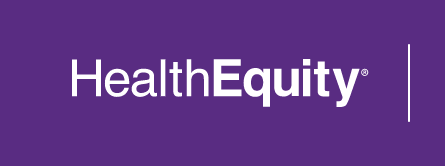Last year, we conducted a survey of 1,155 full-time employees across the United States to understand how they were managing healthcare expenses during COVID-19. We found that many are unaware of how much healthcare services cost, and many more are simply unprepared for unexpected expenses. But there's a lot that benefits teams can do to make a difference. This is part three of a four-part series designed to give employers strategies and resources to help their people save more and spend smarter.
Imagine shopping for everyday products or services with little to no access to pricing. Unfortunately, that's a reality many people face in navigating healthcare costs. Not only does that impact their current spending ability, it also makes putting money aside for the future an even greater challenge.
Long-term savings are propelled, in large measure, by smarter spending habits, which raises the question: How can people save if they are spending all their money in the short term? When it comes to being a savvy healthcare consumer, there is perhaps nothing more important than price shopping.
Recent research suggests that price shopping healthcare services can reduce overall spend up to seven percent, which translates into meaningful savings for consumers. Our recent survey reveals that HSAs go a long way toward promoting price shopping. In fact, 65 percent of HSA users in our study say they usually compare prices before selecting a healthcare provider. By contrast, only 55 percent without an HSA say they price shop healthcare.
While price shopping has become more common, there's still room to improve. In our survey, eighty percent of HSA members say they wish they had better resources available to compare prices. Survey respondents pointed to some common obstacles that prevent them from researching and comparing healthcare prices. Here are their reasons:

By providing price transparency tools and amplifying your education programs, you can help your people comparison shop more easily and make more informed decisions about their healthcare. The following online resources are free and easy to navigate.
Five tools to help consumers price shop
- Coupon-driven websites. Services like RxSaver TM and Good Rx allow consumers to check prescription prices and access discount coupons that are accepted at pharmacies nationwide.
- Price shopping solutions. Healthcare Bluebook makes it simple to compare prices along with the quality of services and providers to ensure consumers are getting the best value.
- State-sponsored resources Many states offer similar tools to the Florida Health Price Finder or Health Score Connecticut which enable consumers to compare hospitals, healthcare facilities, and other healthcare providers in their state.
- Health plan comparison tools. HealthEquity offers CompareMyHSA.com, letting consumers compare details from an HSA qualified health plan and other plans offered to evaluate benefits and find the best option.
- Major health plan providers. Most providers including Aetna, Blue Cross Blue Shield and Cigna offer provider-finder and cost-estimator tools to their members.
Conclusion
Providing instruction on how to price shop-as well as emphasizing the user-friendly tools that increase access to pricing for healthcare services-can take the mystery out of costs and put more spending and long-term saving power into the hands of your people.
For more strategies to help your employees become wiser healthcare consumers, follow the rest of our series.
HealthEquity has no control over, and no liability for any third-party websites or materials. HealthEquity makes no guarantees about, the accuracy, currency, content or quality of the information provided by such sites, and we assume no responsibility for unintended, objectionable, inaccurate, misleading, or unlawful content that may reside on any such sites.
HealthEquity does not provide legal, tax or financial advice. Always consult a professional when making life-changing decisions.


